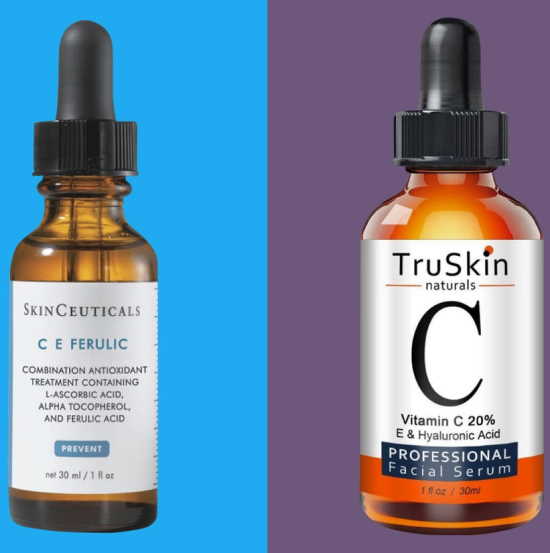Vitamins C and E make up essential parts of the food that encourage tissue function — for example, vitamin C helps your brain interact, and vitamin E helps control blood vessel constriction.
The entire is better than the amount of its components when it comes to vitamin C and E together on skin, given the reality that the two antioxidants have different biochemical roles in the body.
They function well together because they have identical and complimentary roles in your body and work together to support your wellbeing.
Collaboration as an Antioxidant
Vitamins C and E support the antioxidant function of each other. Antioxidants play an important role in limiting the damage to your cells – like your cellular proteins, your DNA and the fats that make up your cell membranes – caused by reactive chemicals called free radicals.

Although vitamin E has the capacity to serve as an antioxidant, it needs recovery after free radical damage is “healed” until it can work properly again.
Vitamin C retains the antioxidant activity of vitamin E in your cells so that it can help to combat tissue damage.
Hair synergistic effects
 The Linus Pauling Institute reports that having all vitamins in the skin helps to prevent sun damage rather than vitamin C or E on its own.
The Linus Pauling Institute reports that having all vitamins in the skin helps to prevent sun damage rather than vitamin C or E on its own.
You need to mix vitamin E oil and vitamin C serum on face to help synthesize the collagen needed for healthy skin, as well as appropriate vitamin E levels to maintain proper cross-linking between collagen fibers.
Complementary role in immune protection
Only vitamins C and E lead to immune function, and having enough of these vitamins can shield you from infectious diseases.
The importance of vitamin C in skin health often preserves your immunity as you depend on healthy skin to avoid bacteria from reaching your body.
This also helps to promote immune response by encouraging immune cell production, and vitamins C and E also regulate immune cell activity.
Vitamin C also triggers the production of interferons — chemicals with antiviral properties — while vitamin E preserves immune function as you mature.








